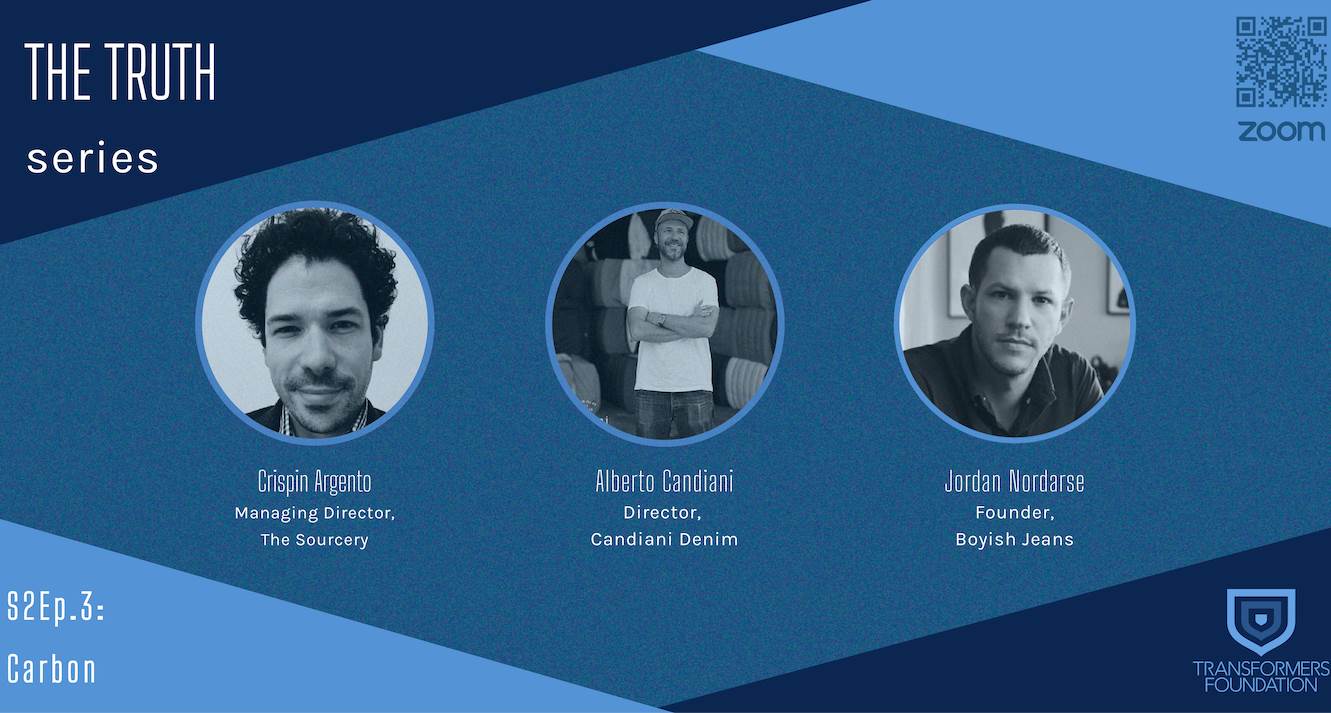Truth Series tackles carbon emissions
05/05/2022

The conversation covered the entire supply chain, from cotton farming to factory operations and responsible sourcing.
At farm level, regenerative agriculture was singled out as a means to reduce carbon emissions in denim making. “We joined Control Union’s regenerative agriculture programme ‘regenagri’ last year,” said Alberto Candiani. Compared to organic farming, he believes regenerative is easier to scale and more efficient overall. To support farmers making the switch to these practices which restore soil health and sequester carbon, Crispin Argento stressed that farmers would be willing to change their practices if they had an incentive to do so. “Farmers would be more willing experiment with reduced tilling, cover crops, and so on, on condition that they be compensated if their efforts fail,” he said.
Though Boyish is a niche brand, Jordan Nodarse said that his company sources locally made supplies whenever possible to limit transportation, and thus keep carbon emissions down. “We are a small company, so our practices will have less of an impact compared to those of larger companies,” he pointed out.
Beyond the farm, a great part of the industry’s carbon emissions is generated by the factories making denim fabrics and garment finishing at laundries. “Spinning and weaving require great amounts of energy,” said Mr Candiani, adding that prices for energy are currently sky high. Here again, he believes improving efficiency can reduce energy consumption. “We need to get smart,” he said. Candiani has recently installed water turbines in its facility to produce its own energy.
Monitoring a company’s current carbon emissions is the only way to enact change, and lack of solid data remains a challenge, the speakers said. “The data we have is mostly hypothetical, it is often only a snapshot in time,” said Crispin Argento. Depending on where a factory is located, it can be powered by gas or coal. “It isn’t possible to benchmark a mill located in India, Italy or Brazil, as their energy sources will be very different,” he said.
The way forward, the speakers said, is to develop harmonised measuring tools, supported by regulations. Though Mr Argento noted that “laws don’t always solve issues, at times they just create new requirements.” In his closing message, he insisted that collaboration is key and that stakeholders need to accept to share risks, so as to share rewards.
Image: Transformers Foundation










